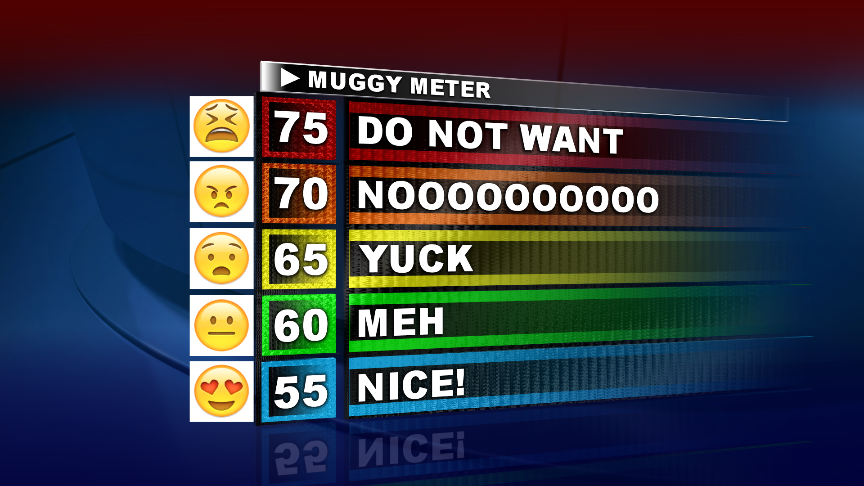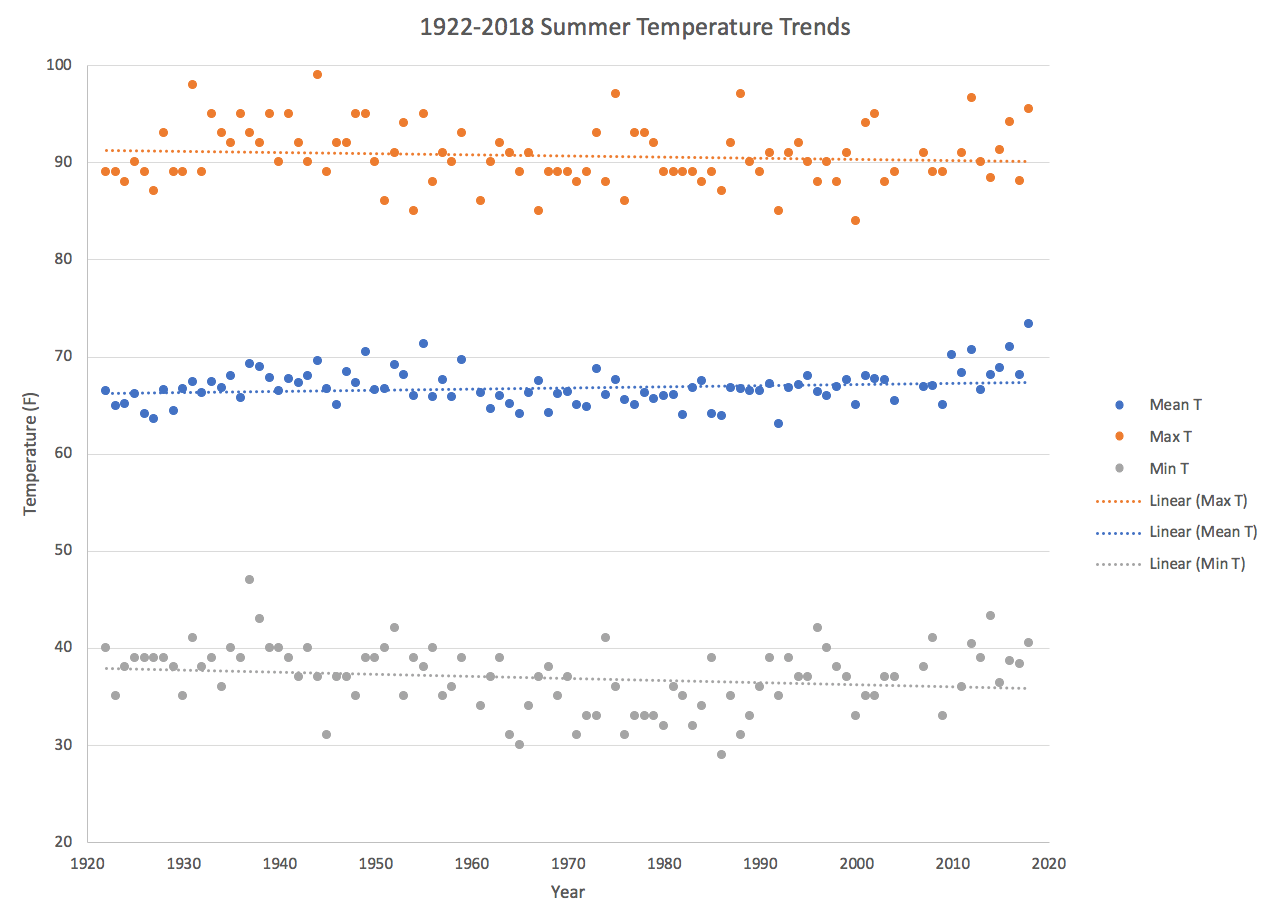The Grasse River near Taylor Park, June 2018. Photo: Jess LaMay.
Hottest summer on record for the North Country
Are you younger than 96 years old? Did you spend your summer here in the North Country? If you answered yes to both, then you just experienced the hottest summer on record (1922-present)! Yes, the summer of 2018 was a hot one.
Now, this might depend on how you define hot; is it the maximum temperature reached? Probably not. Instead, the best metric of “hotness” is probably the mean summer temperature, which is an average of the daily hots and colds (highs and lows) recorded. For climate scientists, we use “meteorological” seasons instead of astronomical seasons. As you know, astronomical summer starts around 21 JUN; however, for simplicity’s sake, people working with weather/climate data find it easier to claim meteorological summer as 01 JUN - 31 AUG. This way, the data are easier to deal with as individual monthly blocks with a definable number of days (92 for summer).
The mean meteorological summer temperature for 2018 was 73.4 degrees Fahrenheit. A full 2.1 degrees warmer than the #2 slot (1955) at 71.3 degrees. To put this “measly 2-degrees” of difference into perspective, the range of temperature difference between the #2 and the #10 hottest summers on record is the same—2.1 degrees.
Although this summer will go down as the hottest on record for the area, it wasn’t necessarily that “wet”; now, I know what you are thinking (and what you felt), “wasn't it super muggy all the darn time?!” With 96 years of rain records for meteorological summer, we received about 9 inches, which is average (9.14 inches), so that wasn’t abnormal (maybe that really dry stretch from 28 JUN to 16 JUL with basically no rain was).
Instead, “wetness” or “mugginess” is usually related to dewpoint temperature, or the temperature to which you’d need to cool the air to reach 100% relative humidity (saturation, or fog/clouds). Based on the 10 years or so of data recorded locally for these metrics, the average dewpoint for the summer of 2018 was 60.5 degrees, which is “meh” (tied for second with 2011; see figure) and the average relative humidity was 68.7 degrees (ranked 10th). All in all, not sure the overall summer was that “muggy;” however, in a region without much air conditioning (sans the movie theaters and a few stores), we feel this much more intimately than any of our neighbors to the south.

Source: 4WARN Weather Blog, https://bit.ly/2NDV8Oz
As we all know, we live in the beautiful North Country, miles and miles away from a bothersome four-lane road, traffic (well, Canton and Potsdam can be relatively congested) and the dreaded “urban heat island” problem where urban centers roast with respect to their rural neighbors due to all their air-conditioning units putting out heat into a baffled, breezeless, concrete hot box. Luckily, we get cool, steady breezes, fresh air (well, when the manure is being spread and it is muggy like it was a few times this summer, woah!) and, generally, tolerable and, mostly, fine summers. There are lots of factors driving our summertime (or other season) weather patterns (e.g., St. Lawrence Lowland versus Adirondack foothills vs. Adirondacks); however, we are seeing a modest increase in Mean summer temperature over the 96 years of record (+1.3 degrees).

Source: Northeast RCC CLIMOD 2 hosted at Cornell University and Weather Underground (West Potsdam Station).
Of particular note, is the precipitous increase in Mean temperature since about 2008 (see figure), which seems to mimic the 1940s/50s data. It’s not clear what would drive this 10-year increase, but the data do seem to cycle up and down on a decadal scale, so it could be “normal.” For the Maximum temperature, however, we have lost 1.1 degrees on average and our Minimum Temperature is getting even cooler having lost about 2.3 degrees over the past century or so.
Regardless, it's a summer for the record books. Now, on to a crisp, cool fall and a snowy winter (we do live in the North Country!).

